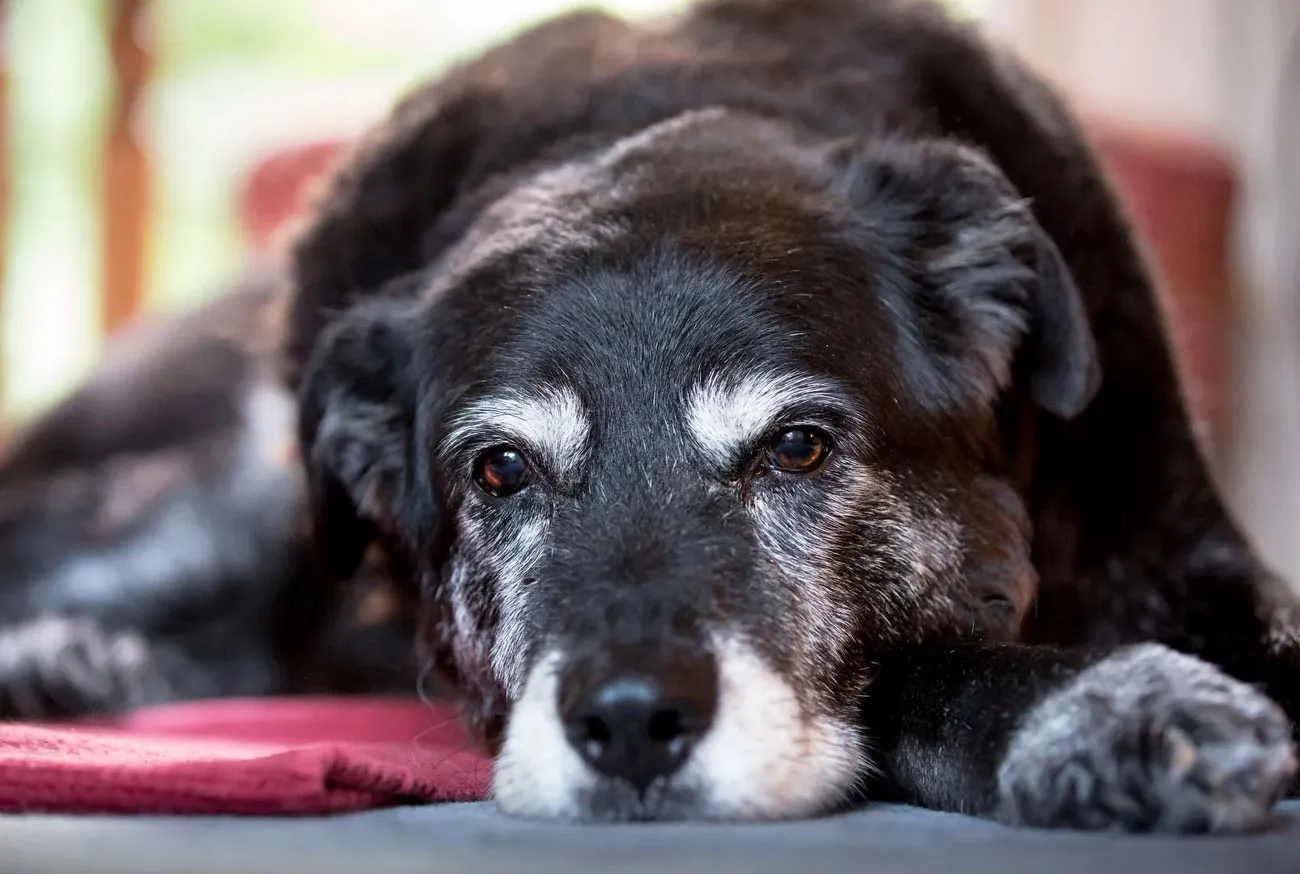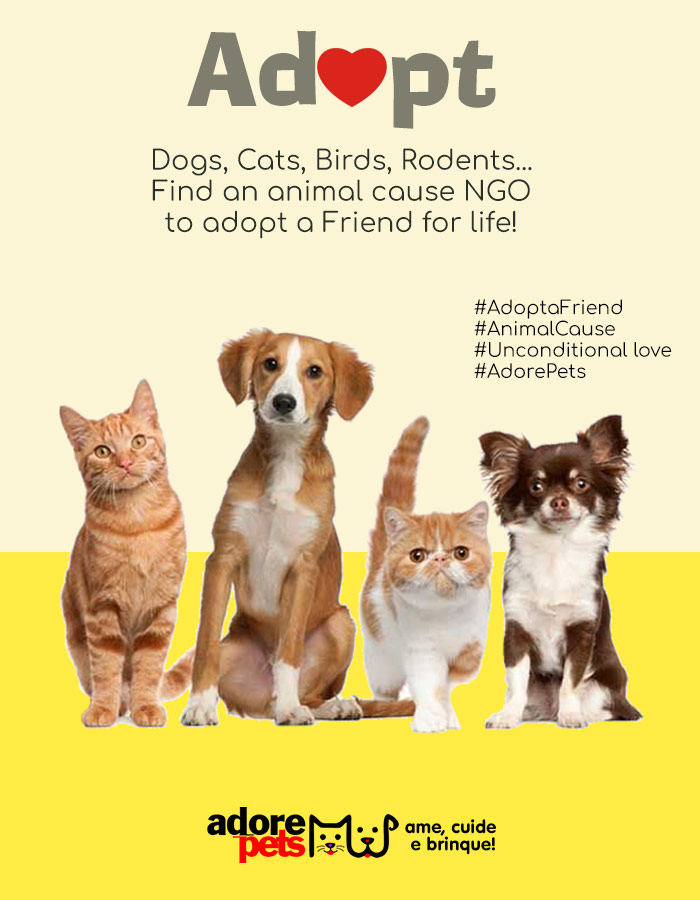In this guide, we’ll cover practical and affectionate tips for taking care of an elderly dog, helping you provide the best support during this phase. From diet to exercise routines, you’ll learn how to make this journey smoother and happier for both of you.
Understanding the aging process of an elderly dog
First of all, it’s important to understand what characterizes an elderly dog. Generally, small breed dogs start aging at around 7 or 8 years old, while large breeds may show signs of aging earlier, at 5 or 6 years old.
Canine aging brings changes that include:
- Reduced energy and a greater tendency toward a sedentary lifestyle.
- Changes in weight, such as loss of muscle mass or gain in fat.
- Health problems, such as arthritis, diabetes, or heart disease.
- Decline in senses, such as vision and hearing.
Recognizing these signs helps adjust care more effectively, promoting comfort and longevity.

Proper diet for elderly dogs
- Choose specific food for elderly dogs, which has lower calorie content and higher amounts of fiber and antioxidants.
- Consider supplements such as omega-3, which helps reduce inflammation and promotes joint health.
- Avoid giving human food, as many can be toxic or unsuitable for dogs.
- Keep them well hydrated, as dehydration can be more common in old age.
Practical tip: Consult a veterinarian to create a personalized diet based on your dog’s breed, weight, and health conditions.
Health monitoring and regular vet visits
The health of an elderly dog requires constant attention. Regular vet visits are essential to detect health problems early and ensure proper treatments.
- Schedule check-ups at least every 6 months.
- Monitor signs such as difficulty walking, persistent coughing, changes in appetite, or behavior.
- Keep vaccinations and deworming up to date, as an elderly dog’s immunity may be lower.
- Invest in blood tests, urine tests, and X-rays to monitor internal organ functions.
The earlier problems are identified, the greater the chances of effective treatment.
Comfort and adapting the environment
Like us, elderly dogs may face mobility issues and sensitivity to cold or heat. That’s why adapting the environment is crucial to providing comfort for your pet.
- Ensure a cozy resting spot with a soft and accessible bed.
- Place non-slip rugs in areas where the floor is slippery.
- Avoid stairs or high surfaces that could cause falls.
- Keep the environment calm and free of excessive noise.
Practical tip: An elderly dog appreciates predictability. Maintain a stable routine to reduce stress.
Exercise in moderation
Keeping your dog active is important, even in old age. Physical exercise helps prevent weight gain, strengthens muscles, and stimulates the mind.
- Take short walks at a moderate pace.
- Adapt playtime to your dog’s energy level, choosing activities that don’t require too much physical effort.
- Invest in interactive toys that stimulate the mind and reduce boredom.
Remember: Respect your elderly dog’s limits. If they show signs of fatigue or pain, stop the activity immediately.
Importance of dental care and grooming
The dental health and coat of an elderly dog also deserve special attention. Dental problems are common at this stage and can affect eating and cause pain.
- Brush your dog’s teeth regularly with pet-specific products.
- Offer treats that aid in dental cleaning.
- Keep their coat clean and brushed to avoid irritations and help identify skin issues.
Proper hygiene contributes to your dog’s overall well-being.
Emotional care and affection: Never stop showing love
Finally, the emotional aspect is just as important as the physical. Elderly dogs need attention, affection, and companionship to feel safe and loved.
- Dedicate moments of your day to interact with your dog, even if it’s just to sit by their side.
- Observe behavioral changes, such as apathy or irritability, which may indicate emotional discomfort.
- Be patient. Aging can bring limitations that require understanding and care.
Understand that...
Caring for an elderly dog is an opportunity to repay years of love and loyalty. With small adjustments and a lot of dedication, you can ensure that this stage is filled with comfort, health, and happy moments. Remember, every act of care makes a huge difference in your companion’s life.
If this content was helpful to you, share it with other pet owners who also want to offer the best for their elderly dogs. Together, we can spread love and knowledge to improve the lives of our four-legged friends!
















Add comment